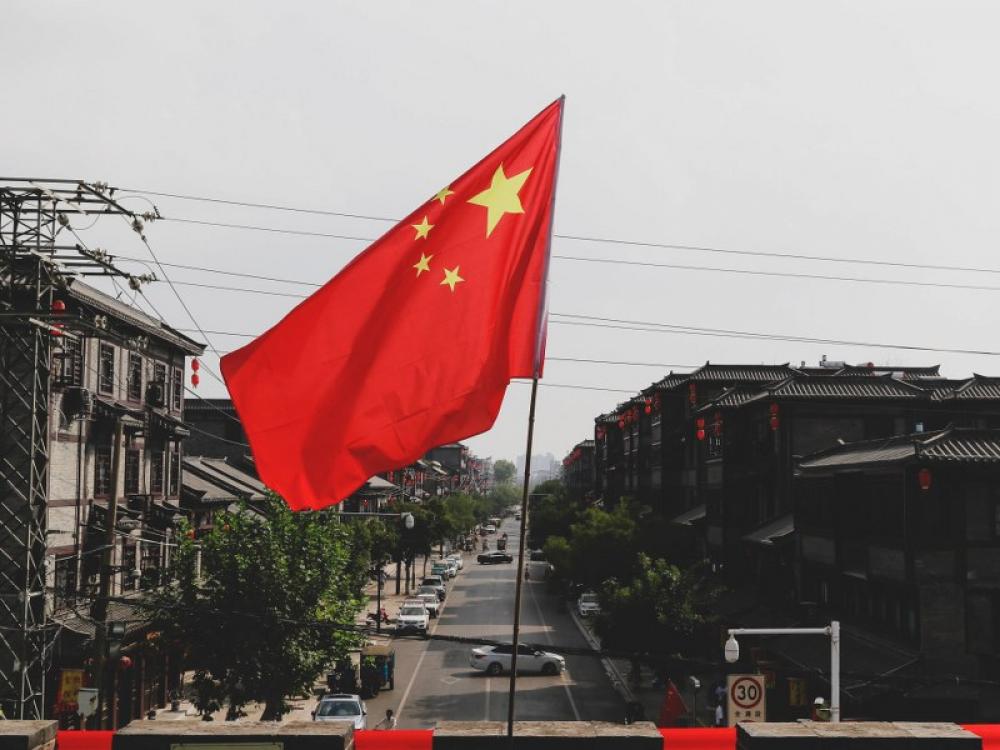Just Earth News | @justearthnews | 13 Sep 2023, 09:07 am Print
 China
China Photo courtsey:Unsplash
For over three decades, China has grappled with the task of managing criticism of its human rights record, facing a surge of outrage following the 1989 Tiananmen Square massacre and condemnation for its mass incarceration of Muslim Uyghurs in recent times.
On each occasion, the Chinese government has confronted the diplomatic repercussions stemming from its own repressive actions.
In an effort to deflect such criticism Chinese diplomats and propagandists have disseminated various assertions. On one hand, they have sought to unite developing nations behind the concept that the "right to subsistence" outweighs concerns about other human rights. Alternatively, the government has justified its authoritarian rule as an embodiment of traditional Chinese "Confucian values," emphasizing duty and social harmony over individual rights.
However, the government has now devised a comprehensive ideological strategy to counter this criticism. China is not merely resisting but actively seeking to undermine a fundamental concept of the post-Cold War international order – the universality of human rights.
This new government strategy is known as the "Global Civilisation Initiative," and it has become a prominent tool in China's foreign propaganda arsenal.
This initiative was initially unveiled by Chinese President Xi Jinping in March and complements two previously introduced diplomatic tools: the Global Development Initiative and Global Security Initiative.
Collectively, these intentionally nebulous concepts aim to expand China's sway over international institutions and norms while advancing Xi's vision for the "great renewal of the Chinese nation." When announcing the Global Civilisation Initiative, Xi articulated lofty ideals about establishing a "global network for inter-civilisational dialogue and cooperation" based on "common values of humanity" such as "justice, democracy, and freedom."
Subsequently, these themes have been widely echoed by China's media outlets and its foreign propagandists.
Nevertheless, the reality is that this initiative represents a contemporary version of a tribute system, in which a dominant China stands atop a hierarchy of like-minded states from the Global South.
In return for these nations aligning with Beijing, the Chinese government offers lucrative trade and investment opportunities, as well as the chance to emulate its authoritarian political model. China's new initiative could have significant ramifications for human rights.
Firstly, in contrast to the liberal international order's respect for universal human rights, China's strategy advocates for a culturally relativist approach, tailored to each country's "national conditions and unique features."
In essence, it rejects the idea of a universal human rights standard and asserts that each nation should establish its own human rights safeguards in accordance with its culture and traditions.
As China's former foreign minister, Qin Gang, stated earlier this year: "There is no one-size-fits-all model in the protection of human rights."
This approach is problematic because it permits governments to selectively apply international human rights standards and serves as a camouflage for China's own human rights transgressions.
A second way the Global Civilisation Initiative poses a threat to human rights is by promoting closer collaboration among illiberal and authoritarian regimes.
Xi underscored the distinction between China and Western democracies, emphasizing that the Chinese Communist Party would safeguard international fairness, justice, and world peace.
To advance modernization, China would eschew both the old path of colonization and plunder and the crooked path taken by some countries to seek hegemony once they grow strong.
To advance this new strategy, Chinese officials have employed seemingly benign language, using terms like "dialogue," "cooperation," and "common prosperity." Chinese state media has even drawn on the ancient Silk Road as evidence that China has long embodied the spirit of cooperation, mutual learning, and mutual benefit.
The goal is to construct a broad coalition of nations seeking an alternative to the Western-led international order. In this Chinese-led model, countries refrain from imposing their values on each other, and interference in internal affairs is strictly prohibited.
Yet, this strategy can serve as a cover for China, establishing a global network of likeminded regimes whose diplomats can shield Beijing's human rights abuses from scrutiny and criticism in international forums.
These regimes can also vote in support of Beijing's resolutions at the United Nations.
In exchange, adhering to the Global Civilisation Initiative can provide greater leeway for illiberal governments to pursue their objectives and punish political opponents without fear of condemnation. As a self-serving instrument for China's projection of power and influence, the success of the Global Civilisation Initiative hinges on its acceptance by developing states. In a world where democracy and human rights are on the decline and authoritarianism is on the ascent, this acceptance may be readily forthcoming.
- YouTube Premium Lite just got a massive boost — Know all details
- Trump claims he stopped 35 million deaths by stopping India-Pakistan war
- Entrepreneur decides to shut down 16-year old eatery in London, cites harassment and Pakistani attacks
- Ubisoft bets big on Assassin’s Creed with strategic leadership revamp
- US: Abducted Sikh man found dead close to Lake Berryessa





-1763561110.jpg)
